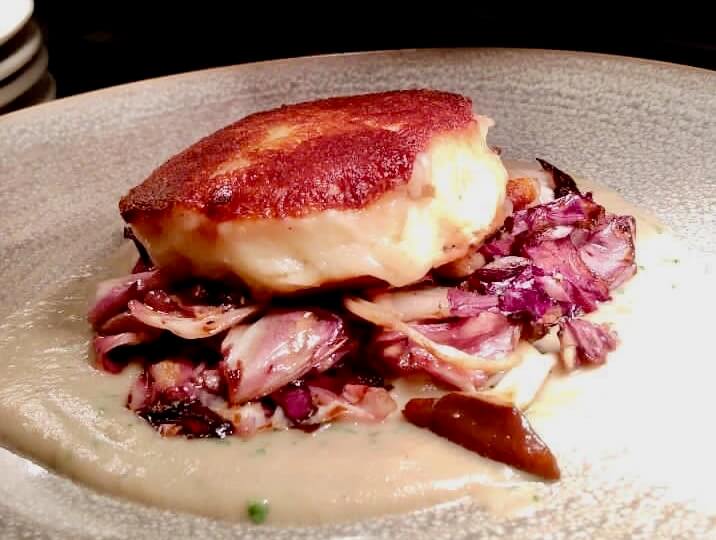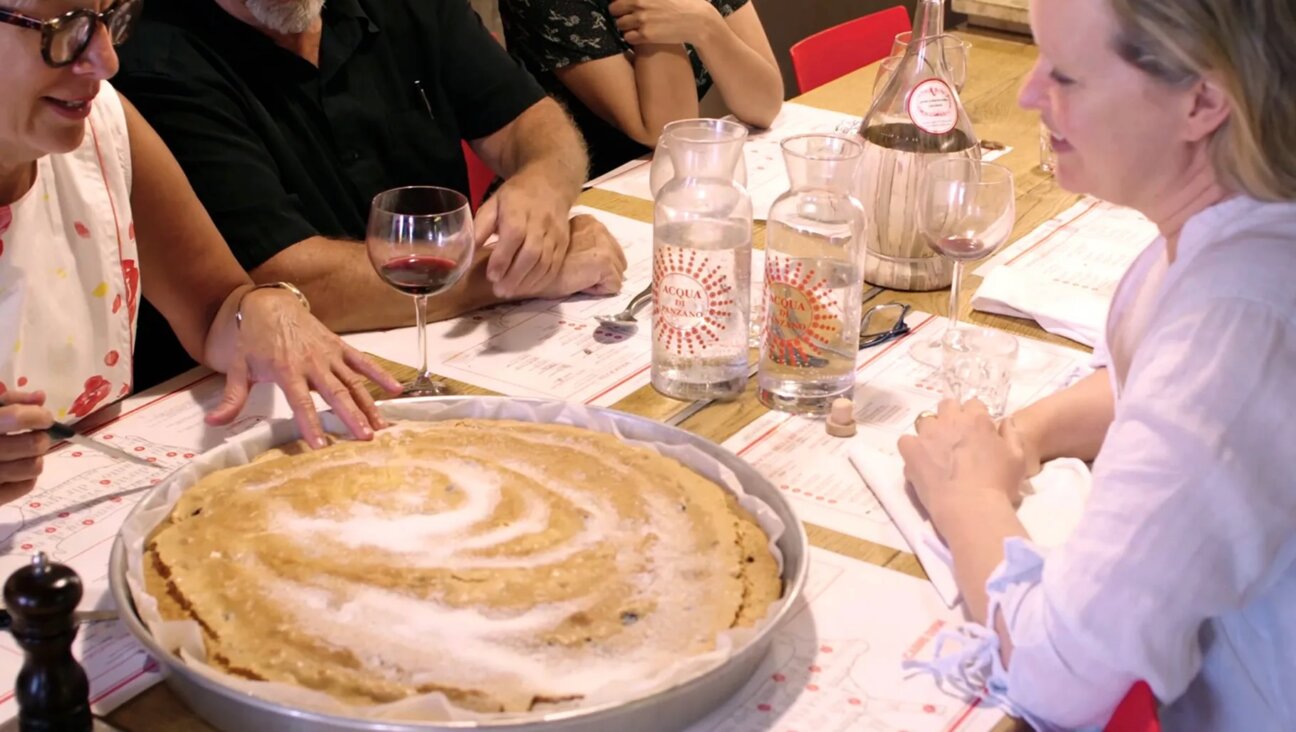My Family’s Cucumber and Vinegar Romance

Image by Photo By Rebecca Joseph
The subject is often food when I’m talking with my mother, mostly by phone these days. I frequently ask her about what people were eating before I took up cooking for myself and how particular dishes were made. In her answers to these questions, there’s a whole lot more for me to learn, especially about our history.
Compared to many, my immediate family is quite small. All the women cook well. Traces of the cuisine that traveled with my great-grandparents from areas that were once part of Austria-Hungary are still in our repertoire. Cucumber salad is a specialty. It appears on Shabbat and holiday tables year round and, at least at my house, in copious quantities throughout the summer.
I learned to prepare this simple, refreshing salad by watching my mother in the kitchen. Naturally, I thought that her way was traditional, as well as right. When I asked her about this recently, she quickly set the record straight. About how she changed the recipe, that is.
Mom recalls that her paternal grandmother’s version called for slicing the cucumbers leaving their skins and seeds intact. Gamma added a cooked dressing of equal parts water and vinegar seasoned with sugar, salt and pepper. She came to the United States as a young teenager, and served her cucumber salad “at the side” with the main course, alternating with other summer staples, especially stewed peaches.
My father’s mother also made this dish. Born to American parents, she called it by its German name, though, gherkin salat. Grandma, too, sliced the cucumbers without removing the seeds or skins. Then, she salted and pressed the slices to release their juices, which were discarded before adding an uncooked dressing with the same ingredients used by my great grandmother. These two women did not like each other much. I wonder whether they ate each other’s cucumber salads and, if they did, what they thought.
None of this explains what I learned growing up. It turns out that my mother redesigned the family recipe in the 1960s. She adopted her mother-in-law’s practices of salting, pressing, and dressing the cucumbers cold. The big change came when she switched to peeling and seeding the cucumbers. Mom also replaced the sugar with chopped dill. Why? She says she was influenced by Danish cooking during several trips there with my father.
My mother has been preparing cucumber salad this way for almost 50 years, more than long enough for me to believe hers was the family tradition. And it sort of is. My sister makes it like this, too. Her innovation is replacing the water with olive oil. Mom does this now, as well. I make it both ways, as I ate it at my grandmother’s table and in my parents’ home.
My daughter learned by making it with me. She is the first of the 5th generation to prepare and serve “our” cucumber salad in the United States. Just in the last month, there has been amazing news. Several relatives we thought were lost survived the Holocaust to resettle in Israel and Australia. We have several hundred cousins. I cannot wait to find out who else is still preparing the family specialty.
Cucumber Salad
Serves 4 as an appetizer or “at the side”
2 cups cucumbers, thinly sliced
¼ cup white vinegar
¼ cup water
2 teaspoons sugar
1 teaspoon salt
½ teaspoon of pepper
1) Place the cucumbers in glass bowl and set aside.
2) Combine the white vinegar, water, and sugar in small saucepan and bring to a boil. Remove from the heat. Add salt and pepper. Pour the warm mixture over the cucumbers. Chill thoroughly.
Variations:
The cucumbers may be peeled, cut in half lengthwise, and the seeds removed before slicing thin. Always remove the peels of cucumbers that have been waxed!
Replace the sugar with 1 tablespoon fresh or 1 teaspoon chopped dill.
Rebecca Joseph, The Rabbi Chef, is the founder of 12 Tribes Kosher Foods in San Francisco and creator of The Parve Baker.
A message from our Publisher & CEO Rachel Fishman Feddersen

I hope you appreciated this article. Before you go, I’d like to ask you to please support the Forward’s award-winning, nonprofit journalism so that we can be prepared for whatever news 2025 brings.
At a time when other newsrooms are closing or cutting back, the Forward has removed its paywall and invested additional resources to report on the ground from Israel and around the U.S. on the impact of the war, rising antisemitism and polarized discourse.
Readers like you make it all possible. Support our work by becoming a Forward Member and connect with our journalism and your community.
— Rachel Fishman Feddersen, Publisher and CEO























